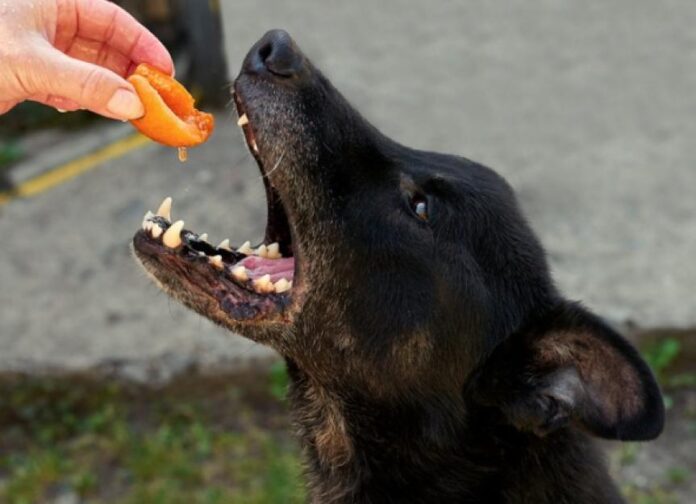Feeding Peaches to Dogs: What Pet Owners Need to Know
Important Reminder: Before introducing any new food into your dog’s diet, including “people foods” like peaches, consult your veterinarian. Individual health factors, dietary needs, and conditions can influence whether a certain food is safe for your dog.
Can Dogs Enjoy Peaches as a Snack?
Yes, dogs can enjoy peaches as a healthy snack, but moderation is key. Peaches are rich in fiber, low in calories, and contain numerous vitamins and antioxidants that support canine health. Here are some of the nutrients found in peaches:
- Vitamin A
- Vitamin C
- Vitamin E
- Vitamin K
- Copper
- Zinc
- Lutein
- Zeaxanthin
- Choline
- Folate
- Phosphorus
- Manganese
- Magnesium
- Niacin
Potential Risks of Feeding Peaches to Your Dog
While peaches can be a healthy treat, there are a few considerations to keep in mind:
- High Sugar Content: Due to their natural sugars, excessive consumption of peaches can contribute to health issues like diabetes and obesity, particularly in dogs that are already at risk.
- Stomach Sensitivity: Puppies may not tolerate this new treat well, as their stomachs can be more sensitive to high sugar foods.
- The Peach Pit: Always remove the pit before offering peaches to your dog. The pit poses a choking hazard and contains cyanogenic compounds that can be toxic to dogs in high quantities.
Signs of cyanide toxicity in dogs can include:
- Vomiting
- Diarrhea
- Lethargy
- Abdominal pain
- Loss of appetite
- Difficulty breathing
- Abnormal heartbeat
- Red gums
- Excessive panting
- Gagging or regurgitation
- Dilated pupils
- Seizures
- Collapse
If a peach pit is ingested, or if any toxicity symptoms appear, seek immediate veterinary assistance.
Dog-Friendly Peach Products: What to Avoid
Peach Yogurt
While peaches can be beneficial, store-bought peach yogurts are often laden with added sugars, preservatives, and potentially harmful ingredients like xylitol. Instead, consider making your own dog-safe peach yogurt by blending fresh peaches with plain, unsweetened yogurt.
Canned Peaches
Canned peaches are not recommended for dogs due to their high sugar content, which can upset your pet’s stomach and lead to health issues.
Frozen Peaches
While frozen peaches might seem like a refreshing treat, be cautious of added sugars and preservatives in store-bought versions. Always opt for fresh peaches that you slice into small pieces and freeze at home to prevent choking hazards.
How Many Peaches Can Your Dog Safely Eat?
Portion control is essential when feeding your dog peaches. Treats, including peaches, should constitute no more than 10% of your dog’s daily caloric intake. Here’s a general guideline on how much peach to offer based on your dog’s size:
- Extra-small dog (2-20 lbs.): 1-2 pieces
- Small dog (21-30 lbs.): 2-3 pieces
- Medium dog (31-50 lbs.): 4-5 pieces
- Large dog (51-90 lbs.): 5-6 pieces
- Extra-large dog (91+ lbs.): A handful of pieces
Monitor for any adverse reactions after introducing peaches. Symptoms of overconsumption include:
- Diarrhea
- Vomiting
- Lack of appetite
- Lethargy
- Stomach discomfort
Should you observe any of these symptoms, promptly contact your veterinarian.
Creative Ways to Serve Peaches to Your Dog
Here are some fun and safe ways to incorporate peaches into your dog’s diet:
Peach Food Topper
Mash sliced peaches and mix them into your dog’s regular food for a tasty boost.
Peach Smoothie
Blend peach slices with other dog-safe fruits like bananas and blueberries. Serve slightly thawed or as a topper, limiting to 2 tablespoons per 10 pounds of body weight.
Peach Yogurt or Frozen Yogurt
Combine peach slices with plain, sugar-free yogurt. Blend with frozen fruit for a refreshing treat, serving no more than 2 tablespoons for every 10 pounds of your dog’s weight.
Stuffed KONG Toy
Stuff any of the mixtures above into a KONG toy for an entertaining and nutritious snack.
Homemade Dehydrated Peaches
If you prefer dehydrated peaches, use a home dehydrator. Keep in mind that dehydrated fruit is more concentrated in sugars, so ensure the pieces are small enough to prevent choking hazards.
As pet owners, it’s essential to ensure that any new addition to your dog’s diet is safe and healthy. Enjoy sharing this delicious fruit with your furry friend!












